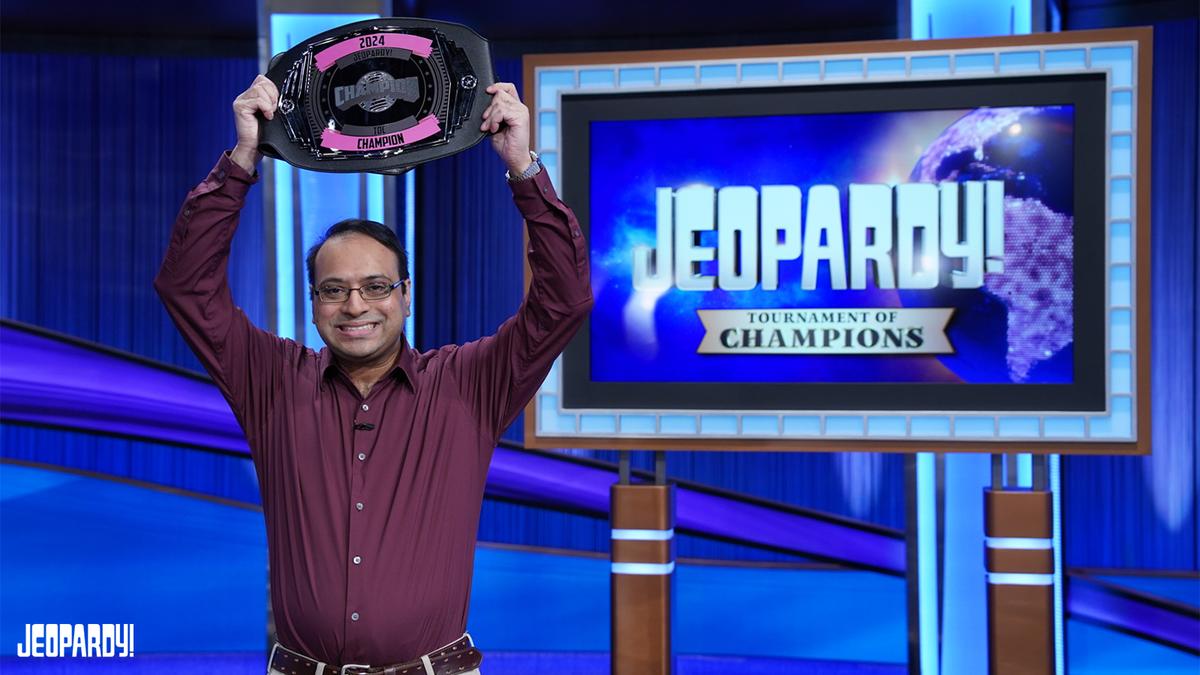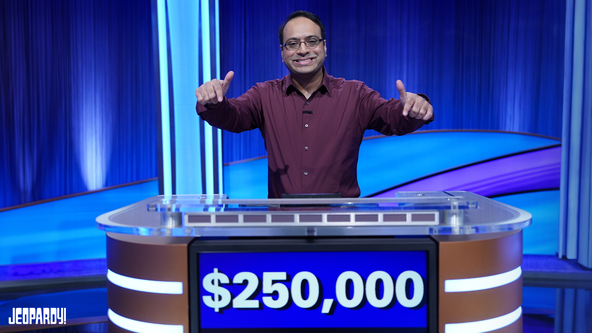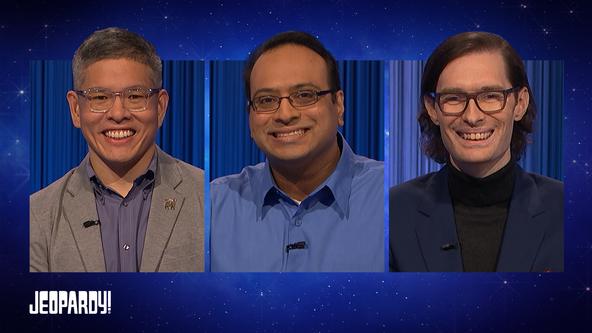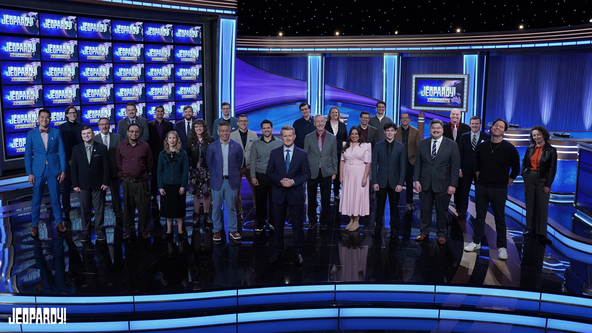Featured J!Buzz
Yogesh Raut Reflects on Winning the 2024 Jeopardy! Tournament of Champions

As I sat on my flight back from LAX to PDX in November 2022, reflecting on my time on J!, I thought I had maybe proven myself to be pretty smart. I had won over $98,000, been part of J!’s only “Perfect Game” since the 20th century, and capped it all off with a fun night at O’Brien’s, the so-called “hardest pub quiz in the country.”
Waiting for the plane to take off, I started playing the find-the-hidden-object game on the monitor in front of me. The woman next to me saw what I was doing and began playing too. It didn’t take long for her to completely outpace me. Eventually, her boyfriend commenced as well, and he zoomed past me in no time at all.
Oh, right, I reminded myself. There’s many different flavors of “smart.” And so I got over myself and went back to my life.
Once my episodes were finished airing, I wrote an article for American Kahani and gave an extensive interview to How to Win Game Shows but otherwise put J! In the rearview mirror. That changed in December 2023, when local ABC affiliate KATU surprised me on air with the news that I had been invited to the Tournament of Champions.
My head spun. Chuck Forrest. Dan Melia. Colby Burnett. Brad Rutter. My fellow Indian American Vijay Balse. Was there a chance I could join these legends and all the other hallowed winners of the J! Tournament of Champions?
Yes. But only a 1/27 chance.
In the back of my head echoed the most famous verse from the Bhagavad Gita not quoted by J. Robert Oppenheimer: “You have a right to perform your prescribed duties, but you are not entitled to the fruits of your actions. Never consider yourself to be the cause of the results of your activities, nor be attached to inaction.”
So, I carried out my usual routine — updating my blog daily, hosting and editing my podcast, writing “friendlies” (fun practice sets) for Online Quiz League, playing Sporcle quizzes — and, not wanting to be attached to inaction, bought a copy of former ToC winner Fritz Holznagel’s book Secrets of the Buzzer.
What I did NOT do was find out anything about my fellow ToC contestants. With a few exceptions, they were all strangers to me when I met them in the lobby of the Culver Hotel. Indeed, Emmett Stanton and I checked in at the same time, but based on the way he was dressed I simply assumed he was an exceptionally nice itinerant Irish folk musician. (I’m still not convinced he isn’t.) My first taste of what I was in for came when Juveria Zaheer’s husband Mike shook my hand and said, “It’s an honor.”
I scanned for signs of irony but found none. It was then that it dawned on me that I was among people who valued and respected me — not just as a buzzer-presser, but as a human being. This continued to be the case throughout the entire week. All 27 other contestants (including the alternate) and every single member of J!’s staff went out of their way to be complimentary, encouraging, and kind to me. Our mutual web of love and support formed a protective cocoon that blocked out the rest of the world and allowed me to focus on the game at hand.
It took decades of hard work and dedication to put myself in a position to win the ToC, and it took a great deal of luck for me to triumph over equally skilled competitors. But at the end of the day, I’m still the guy who — based on how bad I was at that airplane game — can easily be outperformed on a mildly complex visual search task.
***
There’s a common misconception that high-level quizzers are basically robots, spitting back dry, context-less facts from their “photographic” memories. This is not only false — as a trained cognitive and behavioral scientist, I can tell you with certainty that “photographic” memory is a myth — but it does a great disservice to the personality traits actually correlated with quizzing success: boundless curiosity, pride in one’s own passion, a desire to connect with others over their passions, and creativity.
Yes, creativity. As the psychologist Scott Barry Kaufman once said, memory is designed not for recall, but to make meaning. Success at quizzing isn’t about having a superior innate memory; it’s about making the world memorable by investing it with meaning. So it’s not surprising that many great quizzers are lovers of wordplay, comedy, and storytelling. Memorizing facts by rote is hard. It’s much easier to absorb them when you repeatedly process them while drawing unexpected and original connections.
***
Though learning about one’s world eventually becomes fun for its own sake, I have a theory about where the original hungry-mindedness comes from. I can’t help but notice that many top quizzers are from underprivileged minority groups. When one is caught between cultures and unsure of one’s place in the world, the search for meaning gets kicked into overdrive. This leads to the absorption of facts, because facts are key to assembling new frameworks of meaning.
I don’t think it’s a coincidence that the first knowledge quizzing demonstrations I ever gave involved knowing states, capitals, and U.S. presidents. Growing up as the child of immigrants, with a foreign-sounding name in the heart of Central Illinois, I had to prove every day that I was an American. Negotiating exclusion is fundamentally intertwined with my drive for learning. In my struggle to not be a perpetual outsider, I quickly became attuned to listening to others, finding out what they cared about, and developing ways of having conversations about those things despite living in a household where most of Americana was unfamiliar and most contemporary pop culture was shunned.
“Trivia” sticks with us precisely because it is not trivial. Not only is it inherently interesting, but for less privileged members of society, sometimes it’s a matter of survival.




